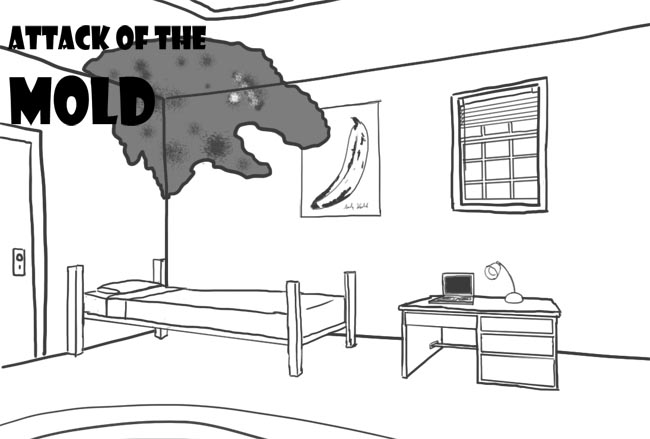It is imperative that the College of William and Mary develop a more effective and timely means of addressing mold.
Both the student pursuing legal action because of mold in her Ludwell apartment and the four students living in the Landrum Hall basement waited an egregious amount of time for their repairs to be completed.
The four students of Landrum were subjected to a repair that took nearly four months from the time the work order was entered to the date of completion for mold growing in their bathroom ceiling. A second work order and a parent complaint were necessary to expedite the repair, which was apparently forgotten about when a supervisor was out of the office, according to an email from Residence Life staff.
Four months is a long time to wait for any sort of repair, and is made worse when students are forced to live with disgusting and, more importantly, dangerous mold. Living with excessive mold is uncomfortable as well as concerning, and can affect the quality of life for students inside residence halls. Given that students pay the College to provide them with housing, the College should honor that payment with safe, livable conditions.
In the case of Mary-Beth Berg ’15, who is currently pursuing legal course against the school for injuries resulting from the College’s neglect to address the mold in her apartment, the school claimed that mold was not above a normal level, and that all buildings in eastern Virginia have mold. The focus of the College’s claim is misdirected; the level of mold, safe or not, does not trump the quality of a student’s life within the residence halls. If a student is uncomfortable with the state of mold in her living space, the issue needs to be addressed regardless of its level of infestation. Additionally, mold of a “normal level” should be addressed before it reaches levels that finally merit attention. The College must be proactive in addressing these reports so the situation does not worsen and endanger students.
One reason these cases may be mishandled is because the College lacks a clear policy on how to handle mold within facilities. The school’s current webpage on mold and mildew is almost comical; it offers impractical guidelines, such as keeping doors and windows shut at all times, and redirects all reports to the inefficient work order system. Compare this to the University of Virginia’s website, which says, “In the event of a flood or large water leak that results in wet building components or furnishings, efforts must be made to dry out the moisture within 24-48 hours.”
A clear policy needs to be presented to the community so they can hold the College accountable for addressing reports of mold in a timely and effective manner. The College should devise a set time and procedure to address reports of mold within 48 hours of the work order, consistent with the standard operating procedure defined by the National Institute of Health. This policy should be posted online so it is accessible to the community. The health and safety of students, especially in the place they call home during the school year, should be of utmost importance.
Kaitlan Shaub recused herself from this column.

